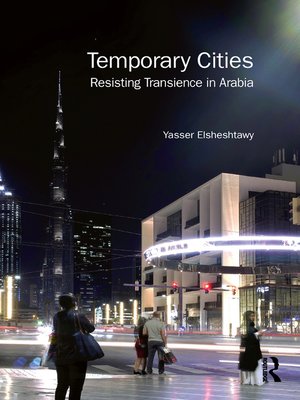Temporary Cities
ebook ∣ Resisting Transience in Arabia · Planning, History and Environment
By Yasser Elsheshtawy

Sign up to save your library
With an OverDrive account, you can save your favorite libraries for at-a-glance information about availability. Find out more about OverDrive accounts.
Find this title in Libby, the library reading app by OverDrive.



Search for a digital library with this title
Title found at these libraries:
| Library Name | Distance |
|---|---|
| Loading... |
Are Arab Gulf cities, the likes of Dubai, Abu Dhabi or Doha, on their way to extinction? Is their fate obsolescence? Or, are they the model for our urban future? Can a city whose very existence is predicated on an imported labour force who build and operate these gleaming urban centres remain a viable urban entity? Could the transient nature of this urban model, its temporariness and precariousness, also be its doom? In this wide-ranging book Yasser Elsheshtawy takes on these tough, but necessary, questions aiming to examine the very nature of the Arab Gulf city and whether it can sustain its existence throughout the twenty-first century. Having lived in the region for more than two decades he researched its marginalized and forgotten urban settings, trying to understand how a temporary people can live in a place that inherently refuses to give them the possibility of becoming citizens. By being embedded in these spaces and reconciling their presence with his own personal encounters with transience, he discovered a resilience and defiance against the forces of the hegemonic city. Using subtle acts of resistance, these temporary inhabitants have found a way to sustain and create a home, to set down roots in the midst of a fast changing and transient urbanity. Their stories, recounted in this book through case studies and in-depth analysis, give hope to cities everywhere. Transience is not a fait accompli: rather the actions of citizens, residents and migrants – even in the highly restrictive spaces of the Gulf – show us that the future metropolis may very well not turn out to be a 'utopia of the few and a dystopia of the many'. This could be an illusion, but it is a necessary illusion because the alternative is irrelevance.







